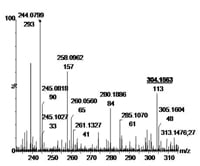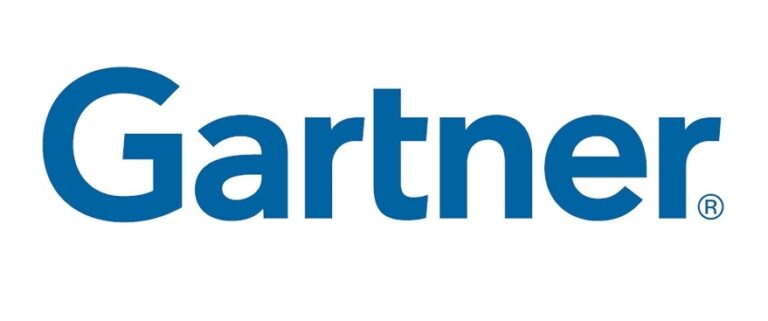Mass Spectrometry Is Moving To Point-of-Care: Why This Matters To You
Breaking Down Mass Spectrometry
For many of you reading this article, the words mass spectrometry will probably mean nothing. However, in the growing field of healthcare and clinical diagnostics, it is an ever increasing term used in the medical lexicon. Mass Spectrometry is an analytical chemistry technique that has been around commercially since the 1950’s, but really expanded in the mid 1960’s and 1970’s when computers could manage the massive amounts of data generated by these instruments. A Mass Spectrometer (Mass spectrometry instruments) basically weighs molecules. The weight is calculated via the molecule’s mass. Since these instruments must ionize chemical compounds to detect and measure them, the instrument actually measures the mass/charge ratio of the compounds.
A good everyday example of what a mass spec does involves your pocket full of coins. Picture in your mind you must determine what (qualitative) and how much (quantitative) you have in your pocket. You first have to take all of your coins and sort by weighing them individually. The lightest being dimes and the heaviest being quarters or fifty cent pieces (do they still mint these?). To know how much you have, you would count how many dimes, pennies, etc. you have. Mass Spectrometers do this on a molecular level by taking the sample (gas, liquid, or solid) compounds and introducing them into the Mass Specs (as they are typically called in the industry). The mass spec (MS) then breaks up the compounds into known molecules. Each molecule has a specific identification, much like an individual fingerprint. Thus it is an excellent tool to identify unknown compounds and determine the amount.
Mass Spec Transitions From Bench Top Lab To Point-Of-Care
Earlier Mass Specs were refrigerator sized, very expensive to purchase/operate, slow, and complicated to use. Usually a PhD level scientist would have to operate one of these and interpret the data. Today however, the trends in the mass spec industry are for mass specs that are relatively smaller in size, faster and much easier to operate. There are even commercially available brief case size and smaller portable mass spectrometers.
Mass specs are also used more predominantly in the environmental, forensic, military, pharmaceutical/biotechnology, food/flavor, and chemical industries. The major growth in the mass spec industry however, is in the clinical & hospital diagnostic market. Mass Spec vendors view this market as a great growth opportunity and you are seeing more instruments being developed and manufactured for this purpose. In the healthcare clinical lab setting, mass specs are used for pain management, drug screening, and newborn screening.

Figure 1. A DESI mass spectrum of cocaine (m/z 304.1563; 500 ng/mL) present in neonatal meconium recorded using a Waters LCT Premiere benchtop mass spectrometer.
The trend now is moving from the bench top lab instrument to point of care diagnostic tools. As an example, today, scientists have developed an “intelligent knife” that can tell surgeons immediately whether the tissue they are cutting is cancerous or not. At the Imperial College London, England, surgeons are using this intelligent knife attached to a mass spectrometer to almost immediately determine which tissue is cancerous and which is not. Thus reducing tumor recurrence rates and enabling more patients to survive. Currently tissue is biopsied during an operation and sent to the histology lab taking 30 minutes or more for results.
Purpose Built Mass Spectrometers Pioneering The Future
In the past, mass specs were too expensive to be used as a cost effective tool at bedside, but with the trend in less costly and easier to operate mass specs, the future of personalized medicine is requiring cheaper, more accurate, and quicker results. Purpose built mass spectrometers and the servers needed to manage, analyze and report the massive amounts of data will enable new measurements in in-vitro diagnostics (IVD), paving the way to personalized therapy and real time drug monitoring itself.
In terms of operations, purpose built mass spectrometers enable:
- Avoidance of costly validation and verification
- Improvement is system uptime
- Better utilization of resources
- Reduction of unplanned costs
Data sets from a single sample are approaching Gigabit proportions with the amount of data overwhelming. The development of faster electronics, faster and more powerful purpose built computers and greater cloud based data storage capability is a critical factor in advancing such technology. Without such development, much of today’s MS analyses would be impracticable.
By Karen Jahnke and Mark Janeczko

Karen Jahnke is owner and Chief Listening Officer at Triumvirate  Consulting Group LLC. As a management consultant her passion is to make an immediate positive impact and to deliver a measurable return on investment.
Consulting Group LLC. As a management consultant her passion is to make an immediate positive impact and to deliver a measurable return on investment.
Contact Karen at +1.262.751.2619 or at kmjahnke@triumvirateconsulting.com
Mark Janeczko lives in the Washington DC area and is Business Development Director at Dedicated Computing. Mark holds a BA in Chemistry/Psychology, an Analytical Technologies Certification in Chemistry and an MBA in International Business.
Contact Mark at +1.703.825.9028





